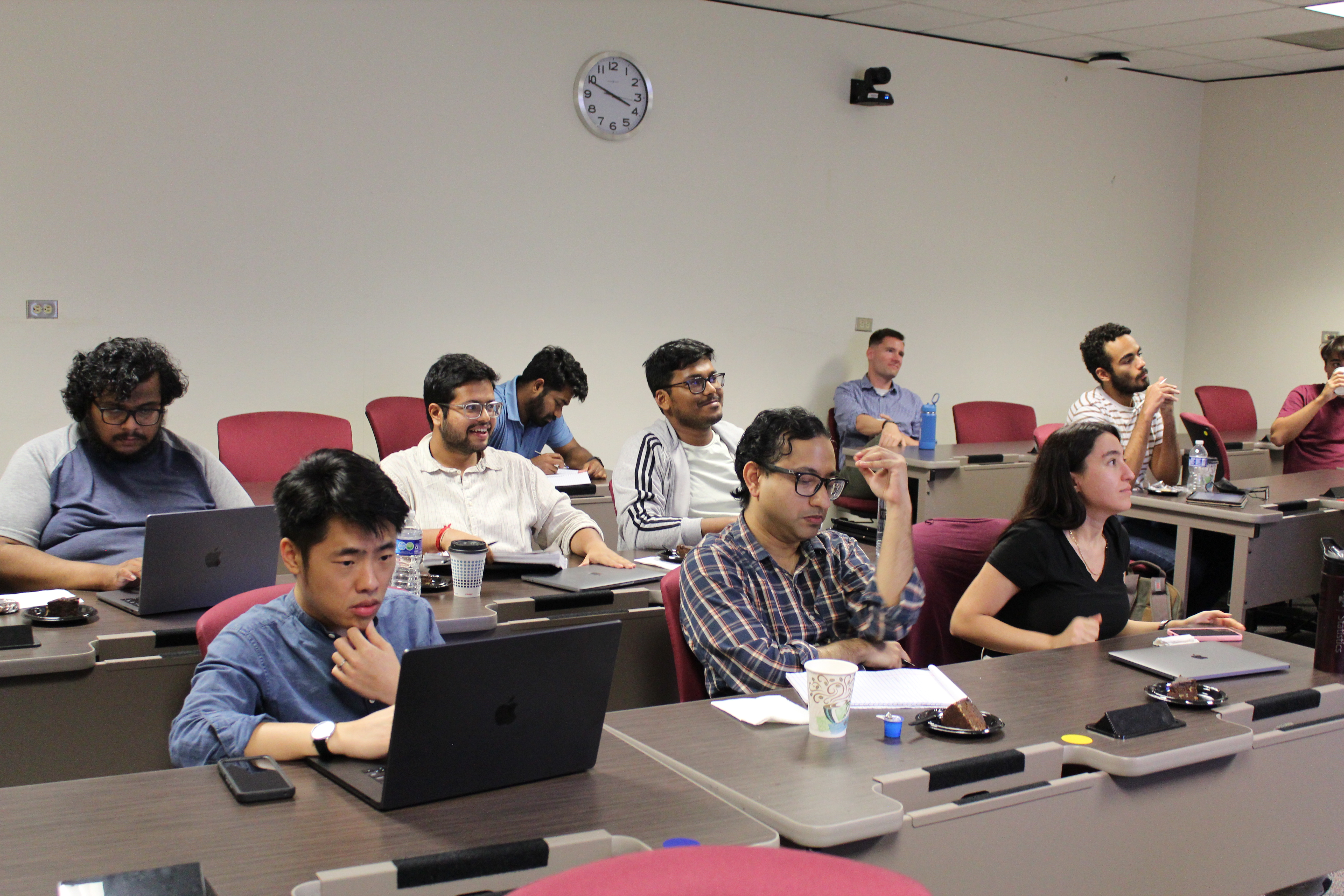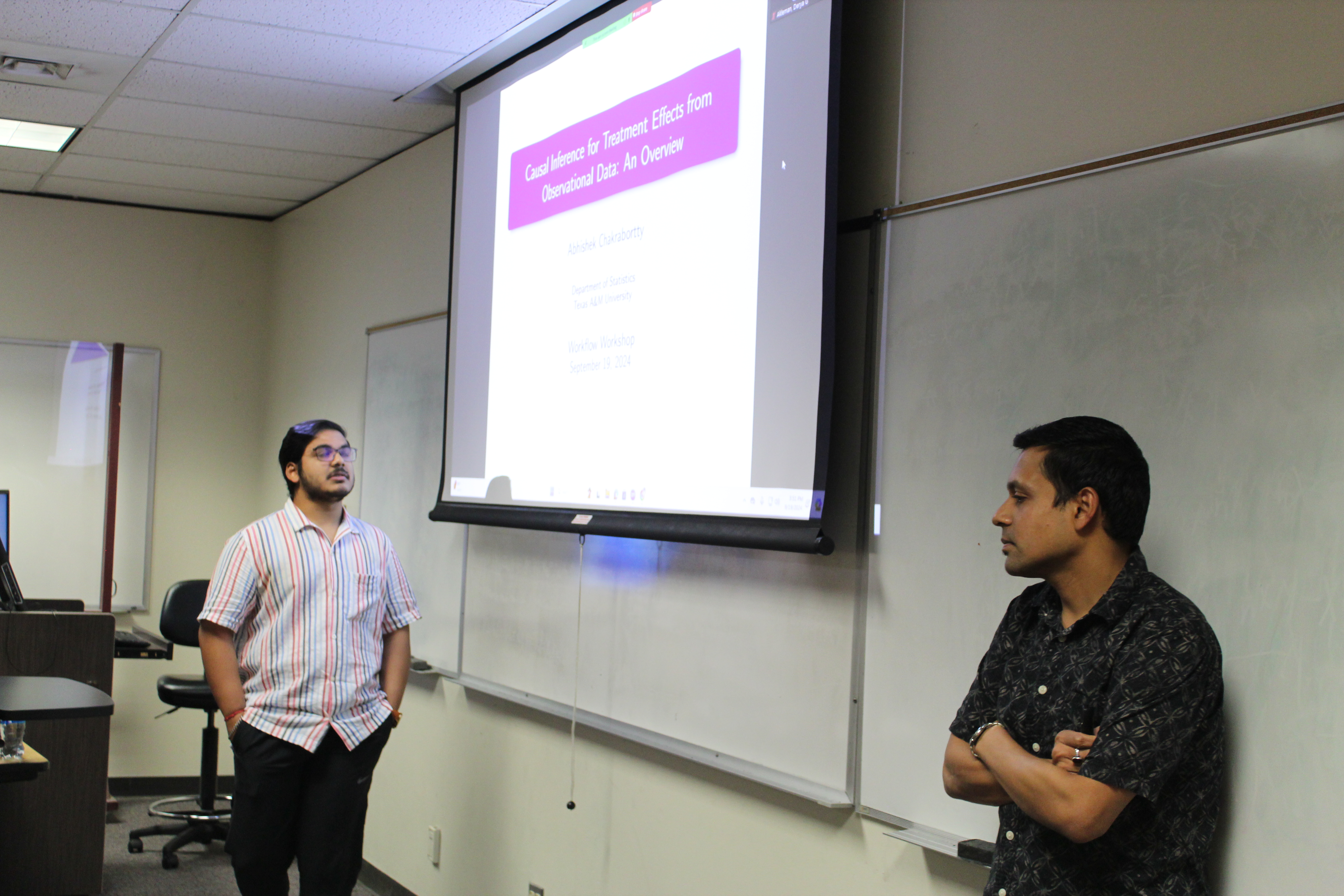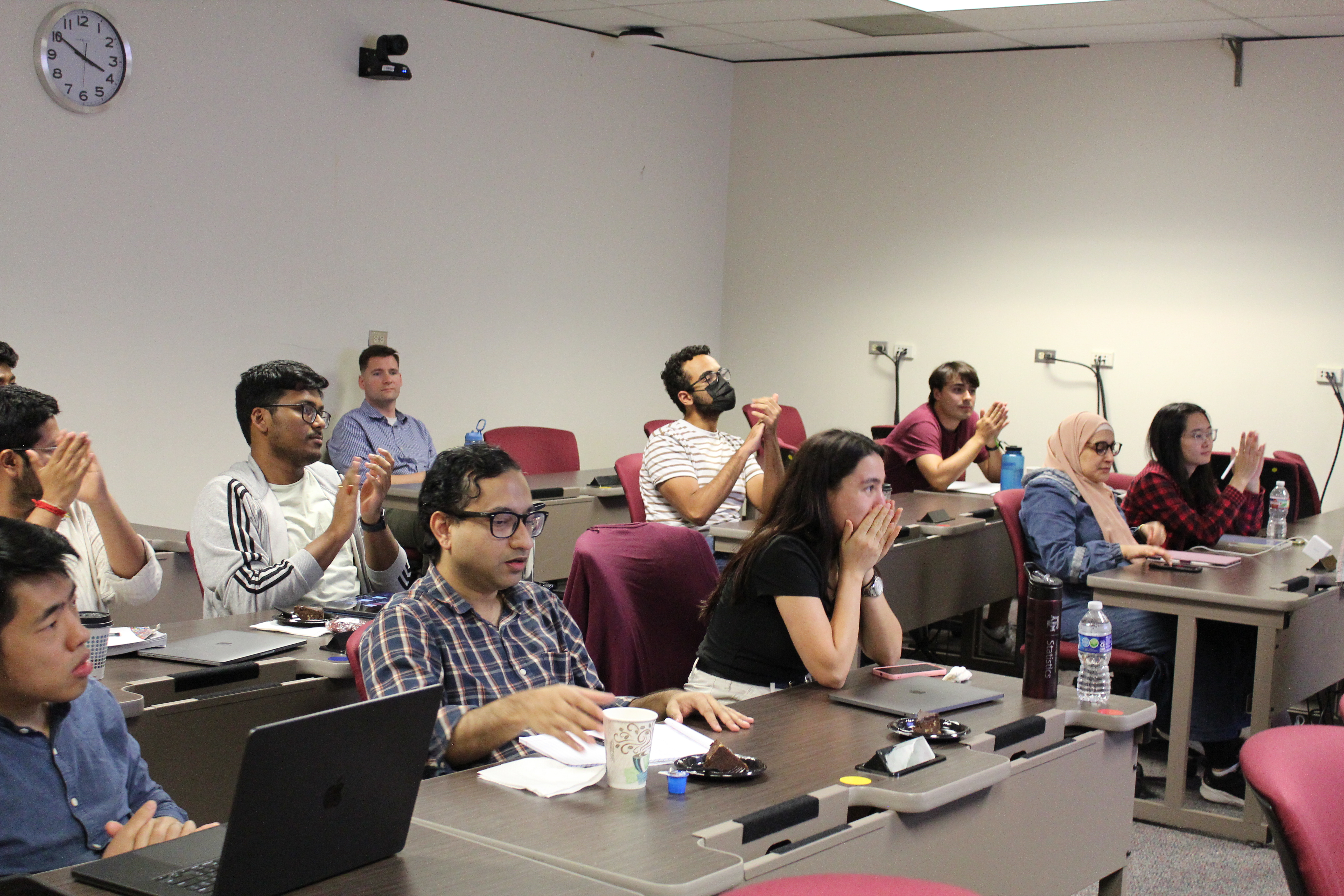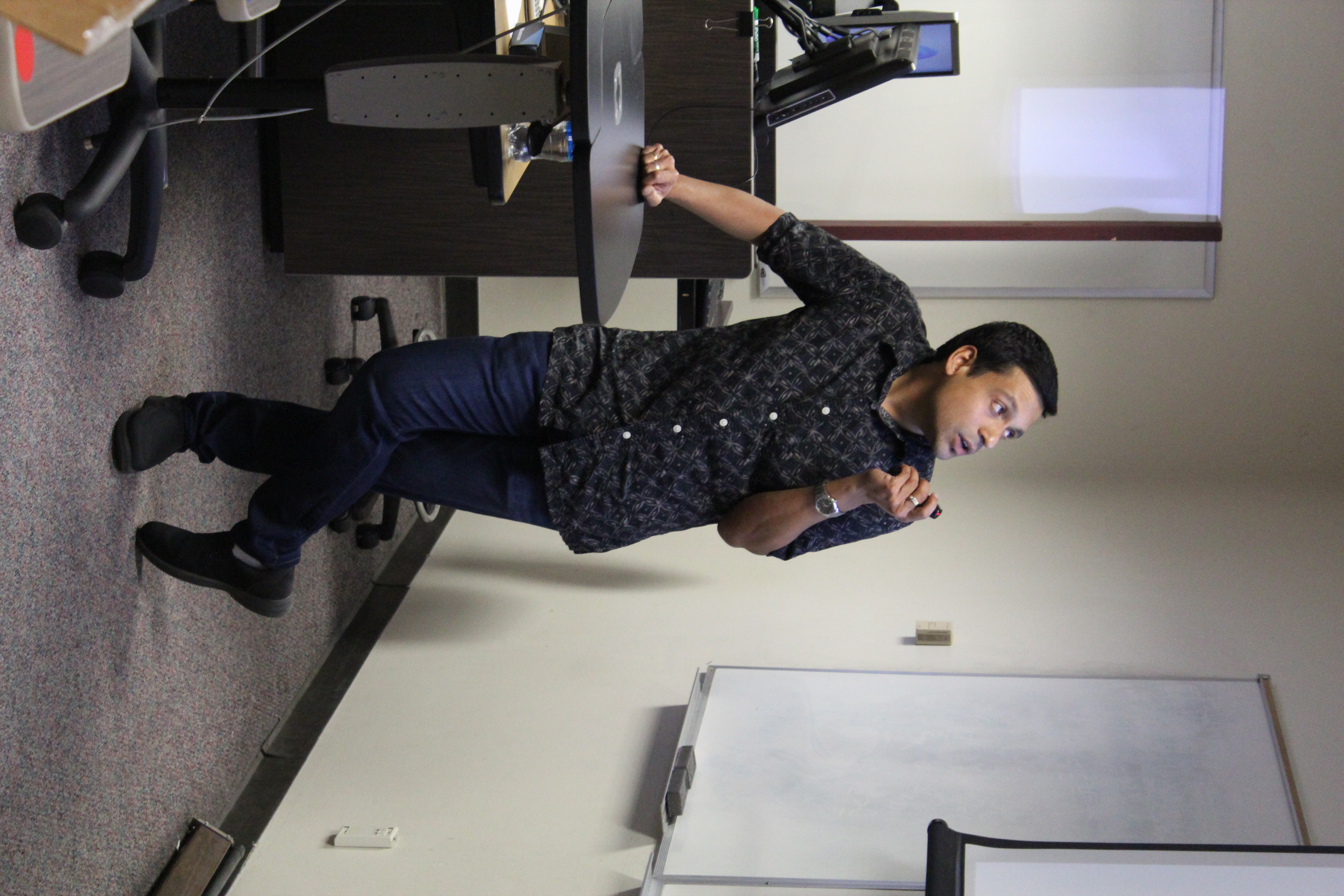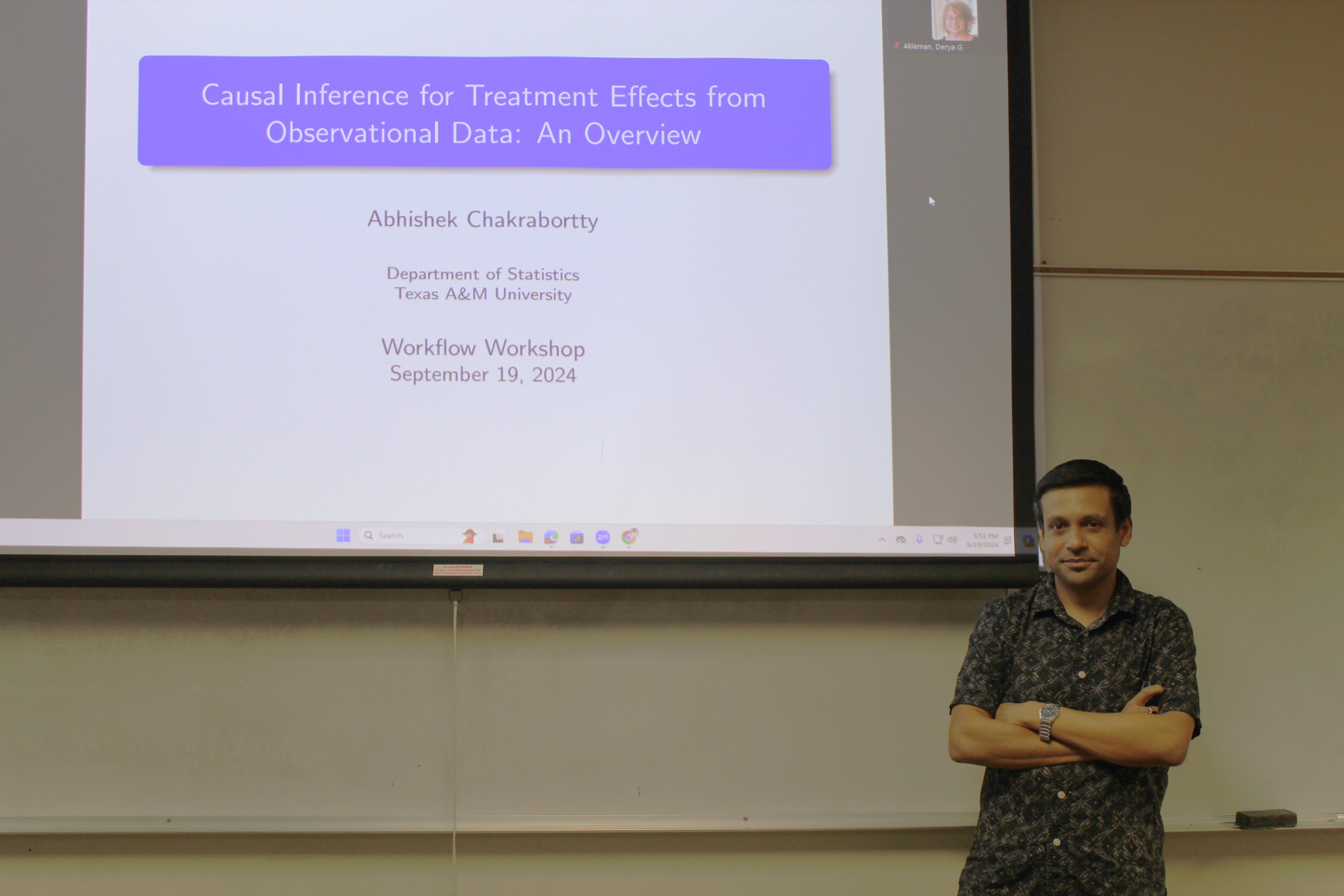Workflow Workshop - Abhishek Chakrabortty
Causal Inference for Treatment Effects from Observational Data: An Overview
- Time: Thursday 9/19/2024 from 3:45 PM Onwards
- Location: BLOC 448
- Presentation (use your tamu.edu account for access)
- Recording (use your tamu.edu account for access)
Description
Causal inference is a fundamental and one of the mostactive areas of research, with a vast literature spanning across decades in both statistics and machine learning, and with wide applications across disciplines, including biology, computer science, econometrics etc. The causality literature is fairly diverse as well, with varied goals and associated methods.In this lecture, I will focus on the causal inference literature for treatment effect estimation, specifically the average treatment effect (ATE), from observational data - which are increasingly popular in the modern “big data” era due to their rich and large-scale nature.I will first introduce the basic principles and philosophy guiding such causal problems, including counterfactual reasoning and the “potential outcome” framework.I will then discuss the key challenges with observational data (as opposed to randomized trials which are the gold standard) dueto issues of confounding and selection bias, and the key causal assumptions one needs to make for valid inference. Thereafter, I will discuss specific strategies for identification and estimation of ATE from such data. In particular, I will discuss three popular methods: inverse probability weighting (IPW), regression adjustment, and augmented IPW (so-called doubly robust or double machine learning) estimators. Their advantages/disadvantages will be discussed in detail and someoftheir theoretical and empirical properties will be discussed briefly as well.
Gallery
